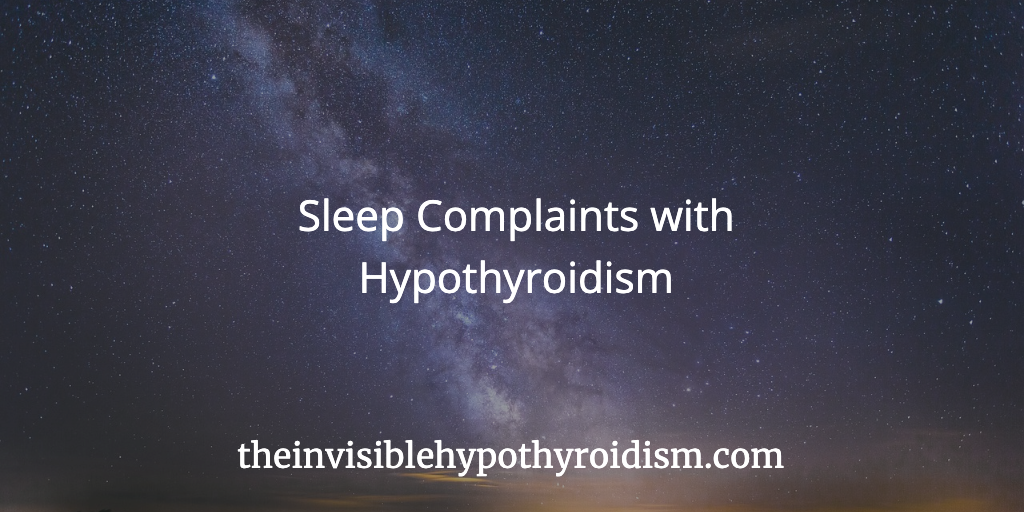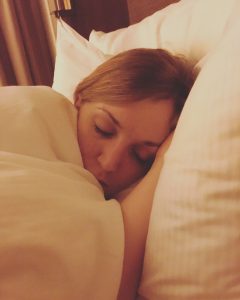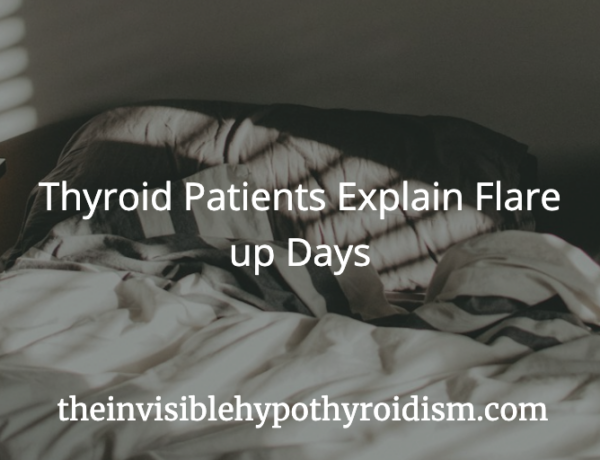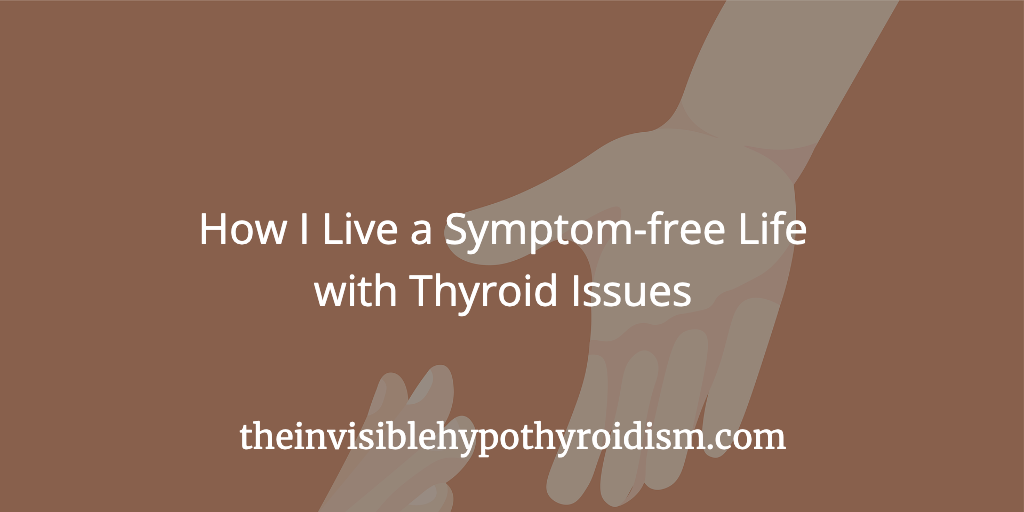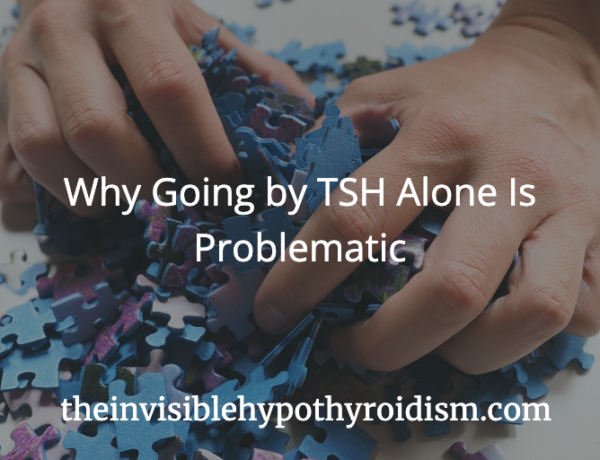Originally published on 8th September 2020 Last updated on 5th April 2024
Issues surrounding sleep can be one of the most frustrating parts of having a thyroid condition. Trouble falling asleep and waking up frequently are often asked about in my Facebook support group.
Despite the common hypothyroidism symptom of fatigue, many of us struggle to get a good night’s sleep. Let’s look at the different ways that our sleep can be affected with hypothyroidism and how to address them.
Types of Sleep Disturbances
The types of sleep issues I am asked about frequently include:
- Not being able to get to sleep. Feeling ‘Tired but wired‘.
- Waking up frequently during the night.
- Waking up at 3am and not being able to get back to sleep.
- Waking up feeling unrefreshed or perhaps ‘more tired’ than when you went to bed the night before.
- Thyroid symptoms keeping you awake, such as muscle cramps and aches and pains.
- Sleep apnea.
- Night Sweats.
Causes and Relief…
Adrenal Health
A lot of the above sleep complaints are often linked back to adrenal health. As well as optimising thyroid hormone levels (especially Free T3 and Free T4), the adrenal hormone cortisol often needs looking at in thyroid patients.
Many of us have adrenal dysfunction, whether in the form of high or low cortisol, which can impact our ability to fall asleep, make us feel ‘tired but wired’, wake up at odd times and not be able to settle back to sleep, have night sweats, and wake up feeling incredibly unrefreshed and ill in the morning.
The adrenals’ main hormone, cortisol, is very important when it comes to energy levels. It is at its highest (or at least should be) in the morning to wake us up, gradually declining as the day goes on, before it reaches its lowest point in the evening, so that we’re ready to sleep. However, when someone has adrenal dysfunction, their cortisol levels often do not follow this pattern and instead, their cortisol may be high when it should be low and low when it should be high, creating issues with sleep cycles.
I used to struggle with every one of the types of sleep disturbances listed above and behind them was high cortisol levels all day, but especially at nighttime, which was affecting my ability to get a decent night’s sleep.
In Thyroid Pharmacist Izabella Wentz’s experience, adrenal fatigue is present in 90% of us with autoimmune hypothyroidism. [1]
Order or ask for a 24-hour saliva test, testing your cortisol levels at four key points of the day, to find out if you have adrenal issues. If your doctor won’t do this, you can very simply order it yourself. You can find testing options here and here.
Blood Sugar
It’s also important to look at your blood sugar and ensure that you’re keeping it well-balanced. Waking up at 3am for example, can be a sign of blood sugar being imbalanced and this may be helped by having a protein focused snack before bed.
You can also try avoiding caffeine after 3pm, as it can still affect you hours later and contribute to you not being able to get to sleep. Identify a point in the day after which you will no longer consume caffeine.
Vitamin Levels
Vitamin levels such as Vitamin D, B12, Iron and ferritin shouldn’t be overlooked either. A deficiency or low level in any of these can make you feel really fatigued, unrefreshed and achey.
A note on Melatonin supplements for sleep:
Melatonin in supplement form is also often seen in online forums, as this hormone can be used short-term to improve sleep, However, it is prescription-only in the UK and is contraindicated for autoimmune conditions as it can stimulate the immune system.
Hashimoto’s
Sleep apnea in thyroid patients has been linked to having hypothyroidism and Hashimoto’s, as those with these conditions are more likely to develop sleep apnea. [2]
Hashimoto’s can cause obstructive sleep apnea, which occurs when the throat is swollen and inhibits breathing, such as with a goitre (enlarged thyroid gland). Managing Hashimoto’s effectively, often by trying to lower thyroid antibody levels and keeping them low, can help to manage this type of inflammation and improve sleep apnea.
Antibody tests for Hashimoto’s can be found here (for the UK) and here (US link).
Muscle Aches and Pains
Hypothyroid myopathy e.g. muscle aches and pains can affect sleep too. This pain is often resolved by optimising thyroid levels, vitamin levels, removing food sensitivities (such as gluten) and supplementing with magnesium.
Exercise
Exercising during the day also promotes a good night’s sleep, so even if you’re struggling with thyroid fatigue at the moment, getting in a fifteen minute walk can really help. You don’t need to go mad with exercise and in fact, doing too much and pushing your body further than is comfortable can worsen any adrenal issues.
The Right Routine
Creating and sticking to a proper bedtime routine is an obvious but important thing to mention too. Too many of us aren’t being conscious about creating a routine which promotes a good night’s sleep and without a routine, your body can’t follow any cues.
Some tips for optimising your sleep routine include:
- Stick to your bedtime – Try to avoid napping during the day, changing up the time you head to bed or sleeping in on weekends. Pick a window and stick to it. For me, I head to bed at 10:30pm and get up around 8am, though I often wake up naturally earlier. After a few weeks of sticking with this, it should become a solid routine.
- For the last hour or two before bed, step away from screens (TV, phone, laptop) and find activities that help you to wind down instead. E.g. meditation, reading a book or taking a bath or shower. Electronics too late in to the evening can interfere with your production of melatonin, the ‘sleep hormone’.
- Change bright lights to warm lamps.
Short-term Help
Some short-term relief whilst you work on the above suggestions (such as optimising thyroid levels, adrenal health, vitamin levels etc.) can include:
- Taking a bubble bath to relax you
- Having a foot soak
- Using Epsom Salts in a bath or foot soak
- Using a pregnancy pillow to help with aches and pains (they’re not just helpful to pregnant women!)
- Using a hot water bottle to ease aches and pains but also help make yourself feel cosy and relaxed
- There are herbal supplements which may help, such as holy basil, ashwagandha and Seriphos. Always consult a pharmacist or doctor before starting any supplements, though.
Do you struggle with sleep?
References:
[1] https://thyroidpharmacist.com/articles/pregnancy-announcement/
[2] https://www.ncbi.nlm.nih.gov/pubmed/180875

